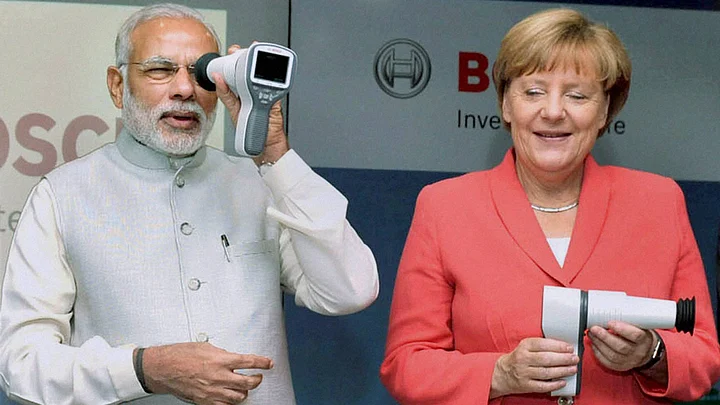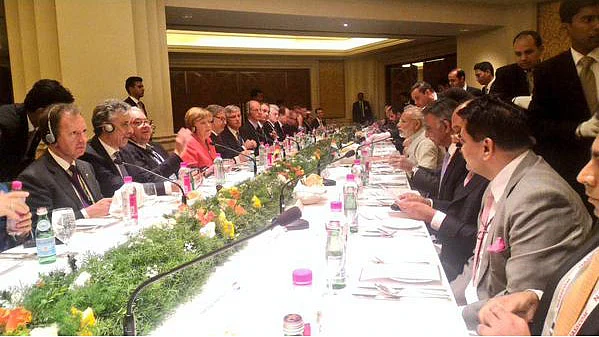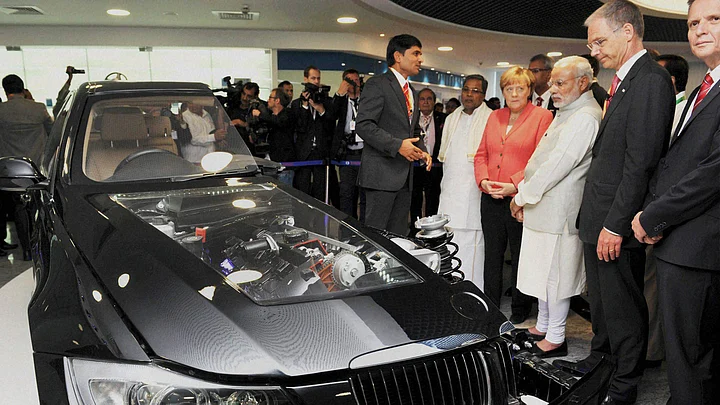Twenty-five years ago both Germany and India underwent deep transformation. Germany achieved unification following a 1990 popular uprising in East Germany that reverberated across East Europe, leading to a collapse of communist regimes and the breakup of the Soviet Union. In 1991 India underwent profound economic reform after a major crisis took the country to the brink of insolvency, forcing the newly elected minority government led by PV Narasimha Rao to do the unthinkable and begin to dismantle our state-control regime. Although the two events were unconnected, a parallel continues in that both countries are still working through the consequences – Germany in its place in Europe and the world, while India confronts an unfinished reform agenda.
In 1993, a rare German foreign affairs document emerged after extensive national consultation; in the ‘Asia Concept Policy’ Chancellor Helmut Kohl’s government identified India as one of its ‘strategic partners’ in Asia – the first Western state to do so. In 2011, the current chancellor, Angela Merkel, took that forward by establishing with India a unique ‘intergovernmental consultation’ mechanism, under which the leaders of the two countries would join six cabinet ministers on each side to examine specific actions to deepen mutual engagement.

A Model Partnership
- India wants to move forward with its EU agenda and overcome blockages to the India-EU Free Trade Agreement (FTA)
- Germany views India as a key player in its Asia policy
- German firms would like to see an improved business environment here
- Mutual service and technology (S&T) cooperation is well developed, but more can be done if Indian establishments get greater autonomy
- Germany’s experience in providing vocational training can be utilised to generate employment opportunities at home
Takeaway from Merkel’s Visit
Against this background, Merkel has been in India this week for her third encounter with Indian Prime Minister Narendra Modi. What is the takeaway from this visit for both countries?
First, a stronger bilateral political engagement has a wider context for both countries. India wants to move forward with its European Union agenda, finding ways to overcome blockages to the India-EU FTA that has been under negotiation for eight years. Germany views India as a key player in its Asia policy, where Europe lacks the political clout that matches its economic prowess. For Germany, India is valued in a contested but crucial Asian environment precisely because a strong India provides stability. Neither perceives a potential threat from the other.

Second, a rising India is attractive to Europe’s leading economic powerhouse for trade, technology and two-way investments. At just over 20 billion euros, our bilateral trade is much below potential; this does not do justice to the 1600 German companies that are active in our country. Of course German companies would like to see an improvement in business conditions in India, as would India’s domestic industry.
The Modi government needs to move ahead across a broad front to ease India’s ‘doing business’ environment. But in my view, assigning a ‘fast track’ for Germany via a bilateral memorandum (as was done late last year for Japan) is not the right answer. All investors in India need a fast track, through an easing of regulations and unintended roadblocks.
‘Soft Power’ Diplomacy
Third, stronger education and S&T exchanges match the needs and the competencies of both sides. India has 12,000 students in Germany, while the number of Germans that come to study in India is miniscule. Considering that tuition fees in Germany are very low and an increasing number of courses are offered in English, our youth needs to look beyond Anglophone options for their advanced studies (the same holds for France and other European study destinations). India also needs to do much more to attract foreign students, from all over the world. Mutual S&T cooperation has developed well, but much more can be done if only the Indian establishments are given greater autonomy and are reinvigorated, as Germany has done.

Fourth, India has long underestimated Germany’s unique experience in vocational or job-oriented training for producing a skilled workforce. This is now accepted as a lead priority in our mutual cooperation, to provide employment for our burgeoning workforce. German’s famed ‘dual system’ holds valuable lessons.
Bilateral summit encounters are too often seen as star events, from which we expect instant gratification. Working with foreign states and managing relationships to mutual advantage is a process where new actions are built on the past, producing cumulative effects, at varying speeds of maturation. This is the path on which Berlin and New Delhi have embarked.
(The writer is India’s former Ambassador to Germany )
(At The Quint, we are answerable only to our audience. Play an active role in shaping our journalism by becoming a member. Because the truth is worth it.)
